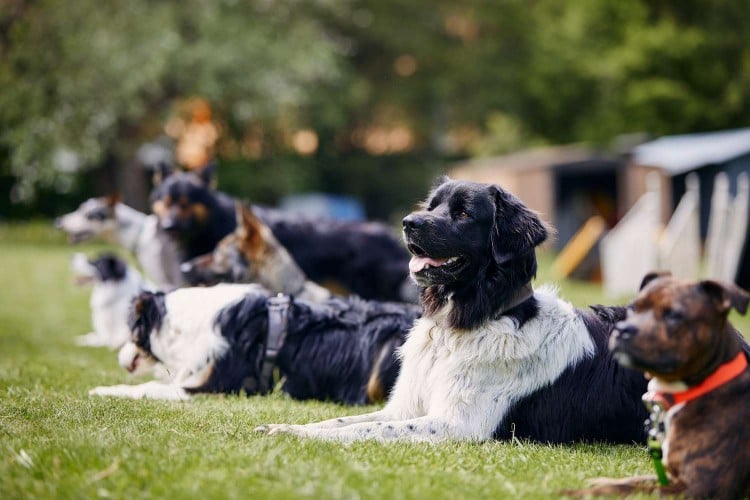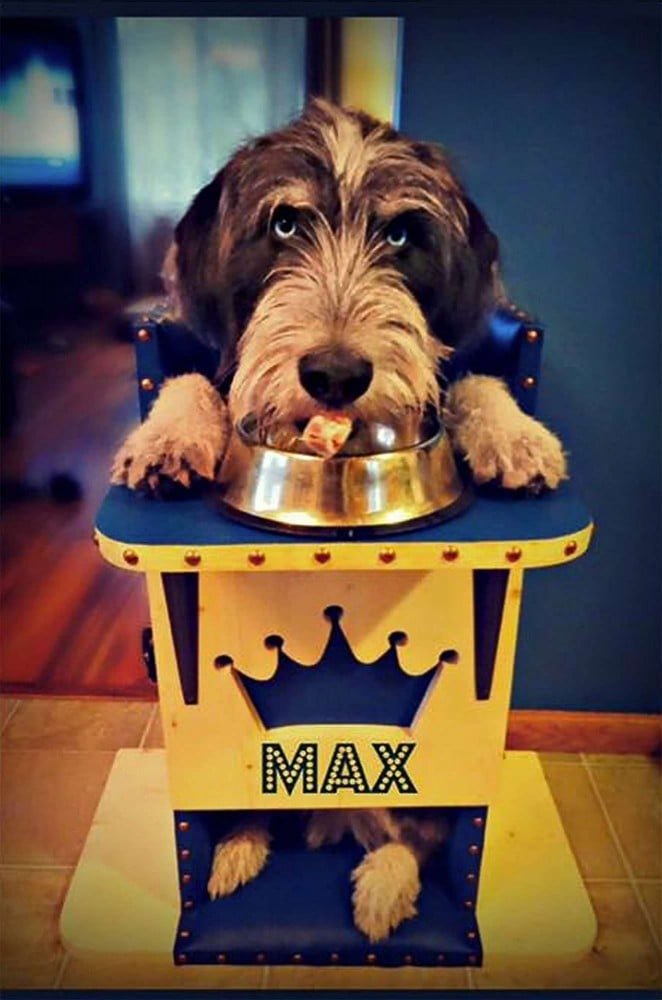How Much Does Dog Training Cost? It Depends on What Your Pup Needs

When you're investigating how much dog training costs, it might be tempting to look for a discount. But while dog trainer cost is an obvious factor, you'll definitely want to make sure the trainer has the right credentials before you consider the bill, says Sarah Kalnajs, CDCB, CPDT. She's a certified dog behavior consultant and professional dog trainer who owns Blue Dog Training and Behavior in Madison, Wis.
The cost to train a dog also depends on the kind of training you're looking for. Group classes are cheaper, while a stay-and-train program can run you thousands of dollars. Let's run the numbers.
5 Reasons Dog Training Makes Life Better
How Much Does Dog Training Cost?
| Expense | Average Cost |
| Individual training sessions | $1,500 – $2,000 |
| Group training classes | $150 – $200 |
| Stay-and-Train services | $4,000 |
Kalnajs says it's best to think of dog training costs as part of the total amount you'll spend on a new dog or puppy. Total training costs, depending on where you live and how much training you want, can be about $1,500–$2,000 in the first year, she says.
That total cost creeps up if you live somewhere with higher living costs, or if you're looking for professionals who will do all the training and offer significant support. That "Rolls Royce" type of training can cost more than $4,000 in a year, Kalnajs says.
And keep in mind: We still have inflation to worry about, and demand for trainers is quite high. That's driven rates up—including hers.
"There are way more dogs than there are trainers [now]," Kalnajs says.
In the Midwest, where Kalnajs is based, you can expect to pay a trainer about $100 to $200 per hour for individualized sessions. She charges $140 per hour for her basic training sessions. (Again, that's in the Midwest, so you can expect to pay more where the cost of living is higher.)
Why Training Your Dog Is So Important & How to Start
Here are some other training options, depending on what you plan to spend:
- A group training class, where you and your dog learn sit, stay, and lie down alongside other owners and dogs, can cost about $150-$200 total (though the price may be higher in areas with a high cost of living) for several weeks of training with one class per week, Kalnajs says. That's definitely a more affordable option, but you won't get as much face time with the trainer leading your classes.
- Stay-and-train (also called board-and-train) involves dropping your dog or puppy off with a trainer for days at a time. That way, the puppy can learn both basic cues and house rules. It's a good option if you don't have the time to train a puppy yourself, but it is expensive. Kalnajs' Blue Dog charges $3,600. Bear in mind that you will need to keep up the training at home if you want the results to last.
- Consultations for puppies or new dogs are another option. A trainer like Kalnajs will visit your home and follow up with you to advise you on how to best teach and handle your new dog. At Blue Dog, those sessions cost a flat fee of $395.
If money's tight—dogs are expensive—there are free resources you can use to train your dog. Kalnajs recommends several online trainers, including JW Dog Training and Behavior, Dog Training by Kikopup, and Simpawtico Dog Training.
What to Look For (and Avoid) In a Dog Trainer
Cost is important, but choosing the right trainer is vital. Besides, do you really want to have to pay another trainer when the first one doesn't get results? Luckily, we and Kalnajs know what you should look for—and what to avoid.
What to Look For
Credentials: Does your prospective dog trainer have acronyms as a part of their title? That's a good sign. For example, if the trainer has CPDT-KA after their name, like Kalnajs does, it means they're a certified professional dog trainer. They've completed hundreds of hours of training and passed an exam. Some trainers might also be certified behavior consultants (CDBC, CBCC-KA), which is great if your dog needs help with problem behaviors such as anxiety or reactivity.
Experience: If a trainer has kept up on their own education and attended—or presented at—conferences, that's a good sign. A trainer who's been in the game for years is likely someone you can trust … but don't let that keep you from hiring a younger trainer, as long as they are certified and show a commitment to their own training and education.
Do you need a behaviorist? Trainers are great for teaching your dog cues and tricks. But if your dog is exhibiting some unwanted behavior, you'll want to talk to a behaviorist or behavior consultant, Kalnajs says.
How to Train a Deaf Dog
What to Avoid
Someone who promises a quick fix or says they can fix anything: Kalnajs calls those "red flags." Sometimes, dogs' problems are complex or take a long time to solve. And the dog-training industry isn't well-regulated, so you need to be on the lookout for guarantees that sound too good to be true.
Trainers who use aversive methods: If you see trainers using choke chains, shock collars, or any other harmful methods, look elsewhere. Reputable trainers should only use positive reinforcement methods.






